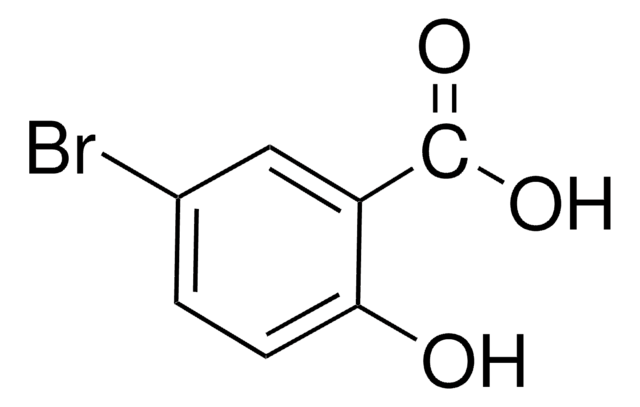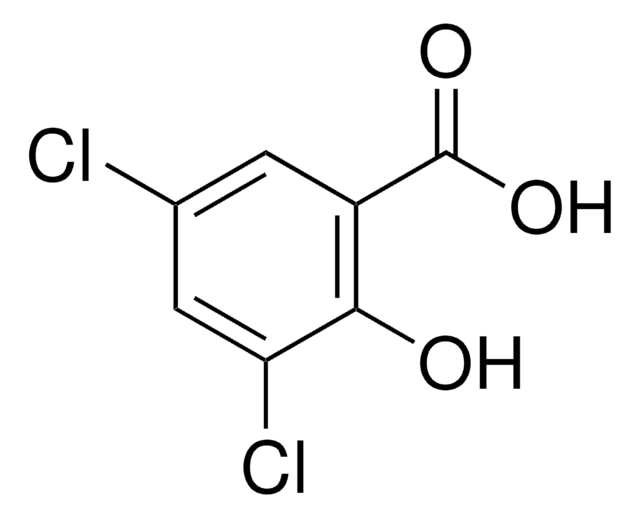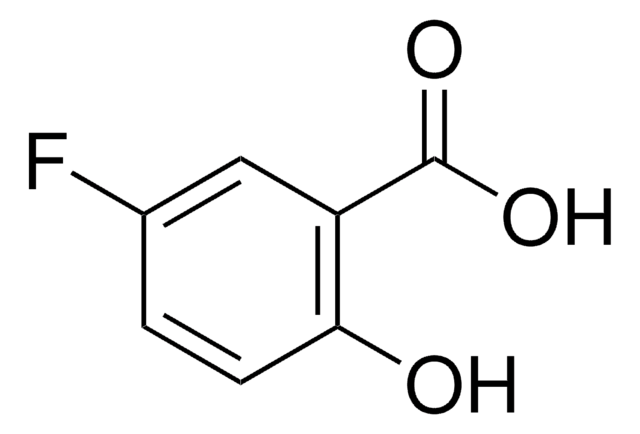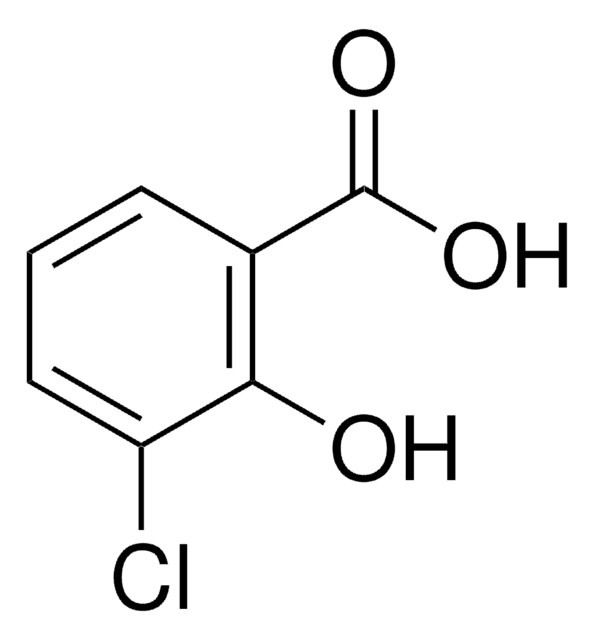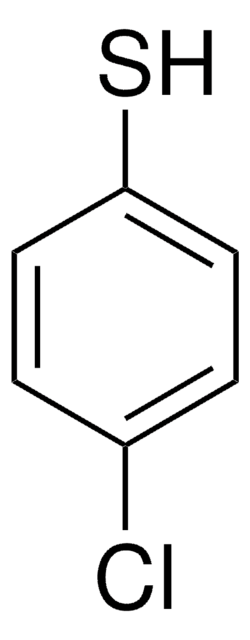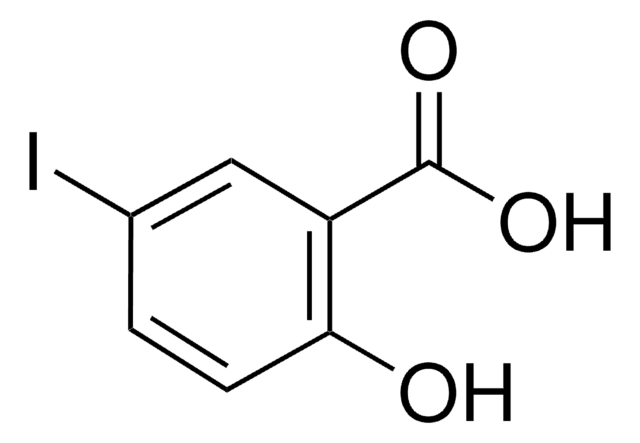C70908
5-Chlorosalicylic acid
98%
Synonym(s):
5-Chloro-2-hydroxybenzoic acid
About This Item
Recommended Products
assay
98%
form
powder
mp
171-172 °C (lit.)
SMILES string
OC(=O)c1cc(Cl)ccc1O
InChI
1S/C7H5ClO3/c8-4-1-2-6(9)5(3-4)7(10)11/h1-3,9H,(H,10,11)
InChI key
NKBASRXWGAGQDP-UHFFFAOYSA-N
Gene Information
human ... ALB(213)
Looking for similar products? Visit Product Comparison Guide
Related Categories
signalword
Danger
hcodes
Hazard Classifications
Acute Tox. 3 Oral
Storage Class
6.1C - Combustible acute toxic Cat.3 / toxic compounds or compounds which causing chronic effects
wgk_germany
WGK 3
ppe
dust mask type N95 (US), Eyeshields, Faceshields, Gloves
Certificates of Analysis (COA)
Search for Certificates of Analysis (COA) by entering the products Lot/Batch Number. Lot and Batch Numbers can be found on a product’s label following the words ‘Lot’ or ‘Batch’.
Already Own This Product?
Find documentation for the products that you have recently purchased in the Document Library.
Customers Also Viewed
Our team of scientists has experience in all areas of research including Life Science, Material Science, Chemical Synthesis, Chromatography, Analytical and many others.
Contact Technical Service
